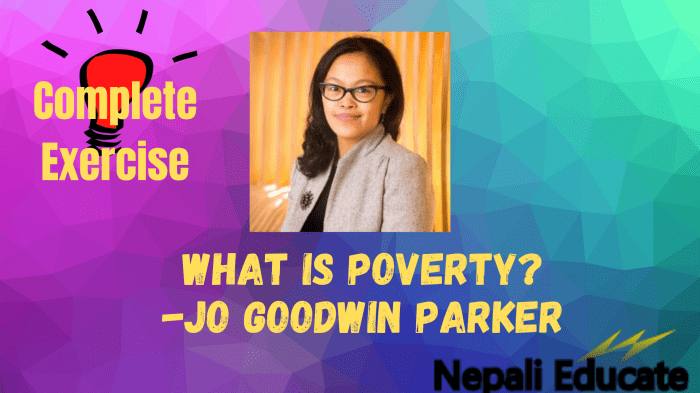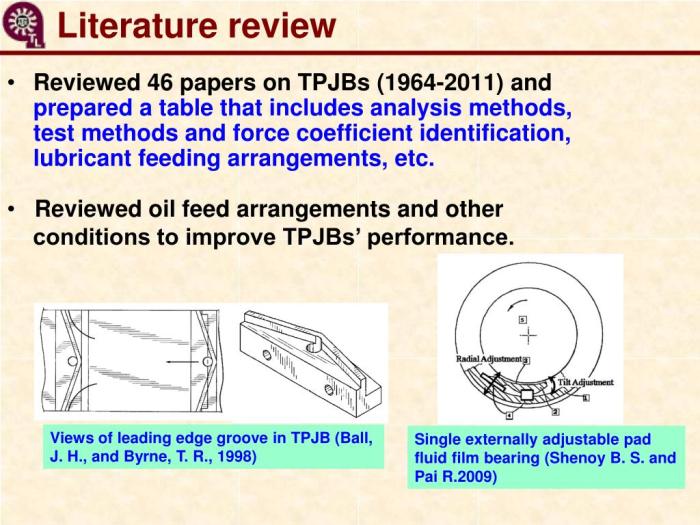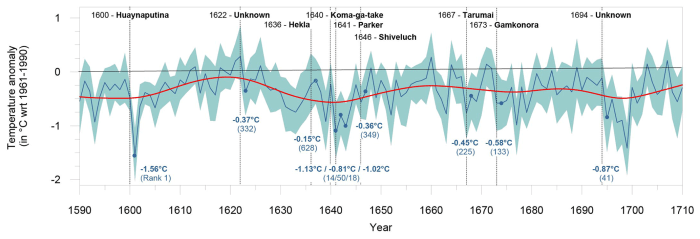What is poverty by jo goodwin parker – Jo Goodwin Parker’s seminal work on poverty offers a comprehensive analysis of its definition, causes, consequences, and potential solutions. This in-depth exploration delves into the multifaceted nature of poverty, examining its impact on individuals, communities, and society as a whole.
Parker’s research provides a nuanced understanding of the factors that contribute to poverty, including social and economic policies, and explores the effectiveness of various approaches to addressing this complex issue.
Definition of Poverty: What Is Poverty By Jo Goodwin Parker

Poverty is a complex and multifaceted concept that encompasses a range of economic, social, and environmental factors. There are various ways to define poverty, each with its own strengths and limitations.
One common definition of poverty is based on income or consumption. The World Bank defines extreme poverty as living on less than $1.90 per day, while the United Nations defines poverty as living on less than $2 per day. These income-based definitions provide a quantifiable measure of poverty that can be used to track progress over time and compare poverty rates across countries.
Another approach to defining poverty focuses on the capabilities and opportunities available to individuals. The Human Development Index (HDI), developed by the United Nations, measures poverty based on three dimensions: health, education, and standard of living. The HDI provides a broader understanding of poverty than income-based definitions, as it captures the impact of poverty on human well-being.
Poverty can also be defined in relative terms. Relative poverty refers to a situation where individuals or households have a lower standard of living than the majority of the population in their society. This definition of poverty is context-specific and can vary depending on the country or region.
Causes of Poverty
The causes of poverty are complex and multifaceted, and vary depending on the context. However, some common factors that contribute to poverty include:
- Lack of economic opportunities:Poverty is often caused by a lack of access to decent work and income-generating opportunities. This can be due to factors such as unemployment, underemployment, or low wages.
- Inadequate education and skills:Education and skills are essential for individuals to improve their earning potential and escape poverty. However, many people living in poverty do not have access to quality education or training.
- Social exclusion and discrimination:Social exclusion and discrimination can prevent individuals from accessing opportunities and resources that are available to others. This can lead to poverty and perpetuate intergenerational poverty.
- Environmental factors:Environmental factors, such as natural disasters, climate change, and environmental degradation, can also contribute to poverty by disrupting livelihoods and reducing access to resources.
- Government policies:Government policies, such as tax policies, social welfare programs, and labor market regulations, can have a significant impact on poverty rates. Policies that promote economic growth, reduce inequality, and provide social protection can help to reduce poverty.
- Health problems:Poverty is associated with a higher risk of health problems, such as malnutrition, infectious diseases, and chronic conditions. This is due to a lack of access to adequate nutrition, healthcare, and sanitation.
- Educational disadvantages:Children living in poverty are more likely to experience educational disadvantages, such as lower school attendance rates, higher dropout rates, and lower academic achievement. This is due to factors such as inadequate nutrition, lack of access to quality education, and family stress.
- Social problems:Poverty is associated with a higher risk of social problems, such as crime, violence, and family breakdown. This is due to factors such as social exclusion, lack of opportunities, and stress.
- Economic consequences:Poverty can have a negative impact on economic growth and development. This is because poverty reduces productivity, limits human capital, and creates social instability.
- Economic growth:Promoting economic growth can help to create jobs and increase incomes, which can reduce poverty. However, economic growth alone is not sufficient to eliminate poverty, as it can lead to increased inequality.
- Social protection:Social protection programs, such as cash transfers, food assistance, and healthcare, can help to reduce poverty by providing a safety net for the most vulnerable. However, social protection programs can be expensive and difficult to implement in low-income countries.
- Education and skills development:Investing in education and skills development can help to improve the earning potential of individuals and reduce poverty. However, education and skills development can be expensive and time-consuming.
- Empowerment and participation:Empowering individuals and communities to participate in decision-making and hold governments accountable can help to reduce poverty by addressing the root causes of poverty.
Consequences of Poverty
Poverty has a wide range of negative impacts on individuals, families, and communities. Some of the consequences of poverty include:
Addressing Poverty
There are a variety of approaches to addressing poverty, including:
Poverty in Different Contexts, What is poverty by jo goodwin parker
Poverty manifests itself in different ways in different contexts. In developing countries, poverty is often characterized by a lack of basic necessities, such as food, water, and shelter. In developed countries, poverty is often characterized by a lack of opportunities and resources, and by social exclusion.
The challenges of addressing poverty vary depending on the context. In developing countries, the focus is often on providing basic necessities and promoting economic growth. In developed countries, the focus is often on addressing social exclusion and providing opportunities for individuals to improve their lives.
Poverty and Social Justice
Poverty is a violation of human rights and a threat to social justice. It is an ethical and moral imperative to address poverty and to ensure that all people have the opportunity to live a life of dignity and well-being.
Addressing poverty requires a comprehensive approach that includes economic growth, social protection, education and skills development, empowerment and participation, and social justice. By working together, we can create a world where poverty is no longer a barrier to human development.
Key Questions Answered
What is the most common definition of poverty?
Poverty is generally defined as the state of lacking the basic necessities for survival, such as food, water, shelter, and healthcare.
What are the key causes of poverty?
Poverty is often caused by a combination of factors, including lack of education, unemployment, discrimination, and social inequality.
What are the most severe consequences of poverty?
Poverty can have devastating consequences, including malnutrition, disease, illiteracy, and social exclusion.

